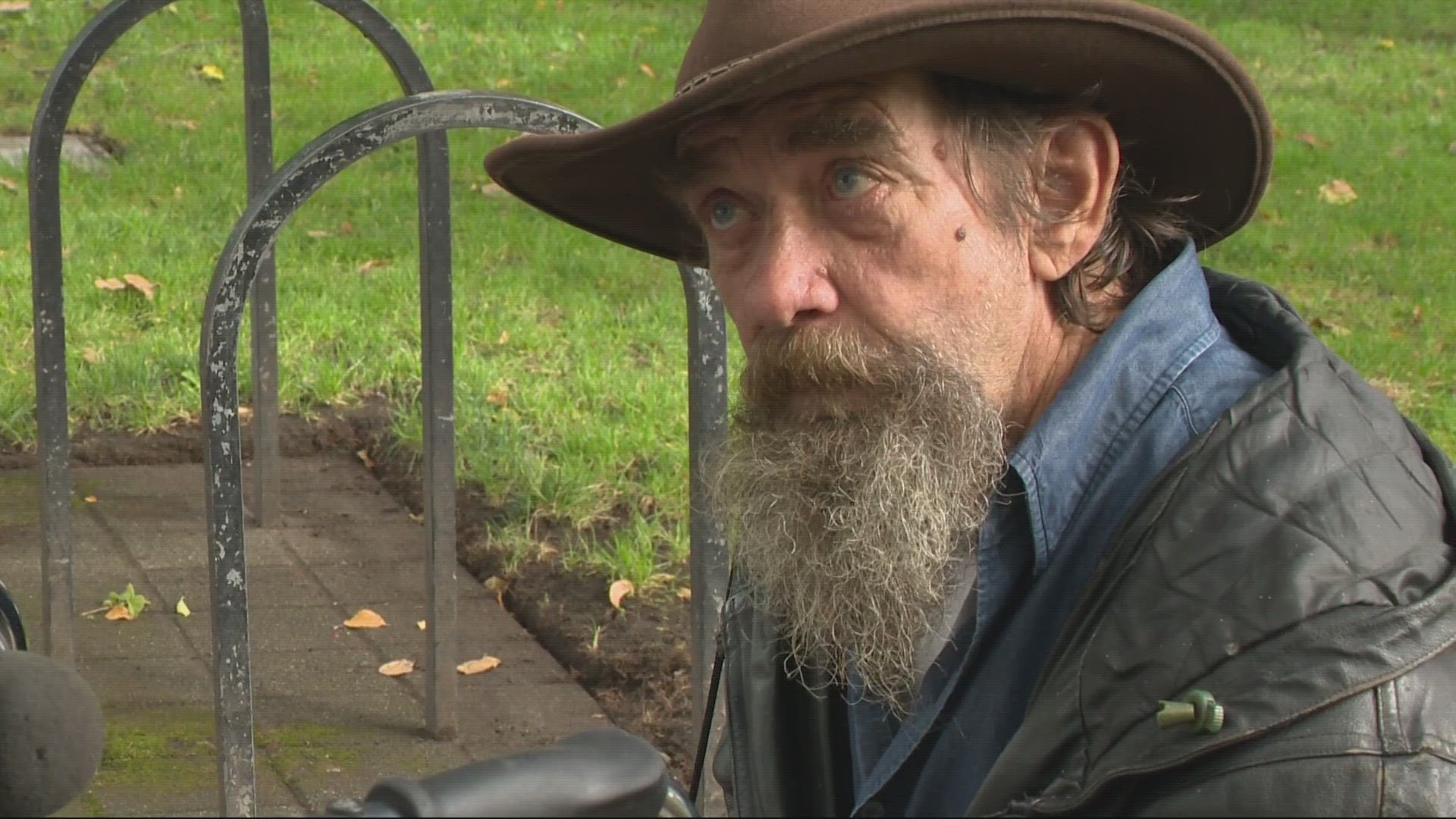PORTLAND, Ore. — For Brandi, every day is a dance with death. She said she's been homeless in Old Town for a decade and addicted to opioids even longer.
On Tuesday morning she sat on a bench in the North Park Blocks on the corner of Northwest Couch Street and 8th Avenue, waiting to take her next hit. It’s the same spot where Portland police said eight people overdosed on a powder laced with fentanyl the day before.
"Some people have a romance with the idea of it, they want to flirt with disaster … I saw somebody die every day for like, I don’t know, 10 days straight,” she said.
Portland police don’t know yet if any of Monday’s victims died — four of them were taken to the hospital — but said that the opioid overdose reversal medication Narcan was used to revive them. It's a life-saving drug that Brandi never goes without these days.
This mass overdose on Monday happened in a downtown area surrounded by homeless resources. Central City Concern is right down the street, the new Behavioral Health Resource Center is a block away, and there are more organizations not far beyond. But none of those places offer immediate help for people struggling with addiction. Instead, they point them to detox centers, which have lengthy waitlists and can only take the people ready and willing to try kicking a vicious habit.
Last week, Multnomah County commissioners voted to spend more than $6 million on emergency detox beds and to start planning for a downtown Portland sobering center. Commissioner Gonzalez said more needs to be done.
“What they didn’t help us with is at the first responder level. We have no place to drop someone off to sober up … I'm profoundly disappointed there. It puts substantial pressure on our first responders, it doesn’t give them the alleviation we promised them,” said Commissioner Gonzalez.
That pressure is also being felt in groups like the Overdose Prevention Program at Central City Concern. Juliana Depietro runs it. It's been open for about six months and their focus is on preventing overdoses by educating people on how to safely use drugs.
“Just trying to encourage folks to really slow down, to build that relationship and trust and get to a point where they can have knowledge in what’s next in their using journey,” said DePietro.
Mayor Ted Wheeler had this to say to KGW in an email Tuesday:
"Yesterday's overdoses are a horrific symptom of a national emergency playing out every day in Portland and across the country. I am working with local, state, and federal partners to find both short- and long-term solutions to stop the flow of these deadly poisons into our city. We must take a good, hard look at our current systems and policies and admit when they fail to serve our community. I look forward to continuing these critical discussions with local and state leadership to get to solutions. We are out of time."
Multnomah County Chair Jessica Vega Pederson added this in a statement:
“This crisis is impacting everyone – as the mom of teens, I’m so worried about the families of teens and young adults who may be unaware of the profound danger they’re in when they experiment with fentanyl,” said Chair Vega Pederson. “I am directing our Health Department to make this priority #1.”
KGW reached out to Gov. Tina Kotek's office — which has said drug use in downtown Portland is a priority for them — but we have not heard back yet.
Commissioner Gonzalez said he believes real change will come with a more aggressive approach on prosecuting drug dealers.
“We’ve got to do whatever we can upstream to prevent people from overdosing, to preventing access to fentanyl and meth so easily on our streets … I think we really need to think about a county-level health emergency. Commissioner (Sharon) Meieran at the country raised that prospect a couple of weeks ago, then kind of batting around what resources we could bring to bear and I think that might lead to more aggressive approach to potentially confiscating drugs, changing our pre-pre-release policies for drug dealers across the board, evaluating policy trade-off that can allow for a more rigorous response to the drug trade and use on our streets," he added.
I think we really need to think about a county-level health emergency commissioner and changing our pre-release policies for drug dealers across the board, evaluating policy trade-off that can evolve in a more rigorous response to the drug trade and use on our streets,” he added.
And some of those on the streets agree with him.
“You want to solve the drug problem? Get the damn drugs off the street,” said Max, who was homeless for 10 years.
It’s drugs like fentanyl that have become a thorn piercing the heart of the Rose City.
“If you got people dying from dope, (the dealers) need to be charged with murder,” Max said.

